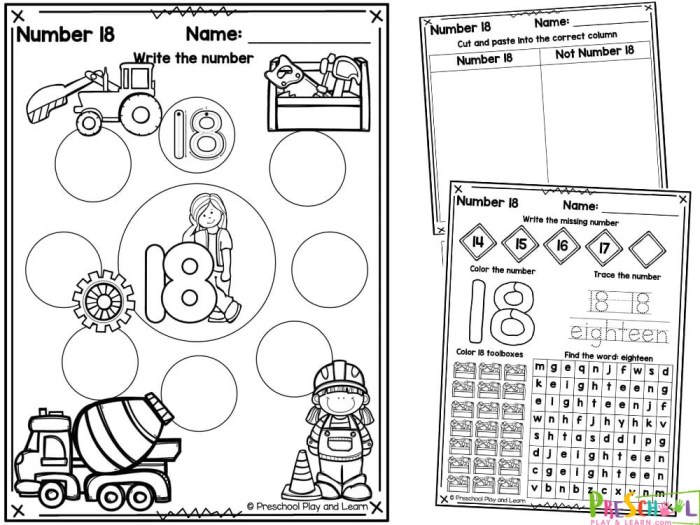8 struggles only parents with difficult kids would understand. Raising a child is a deeply personal journey, filled with joy, laughter, and – sometimes – immense challenges. But what unique hurdles do parents of “difficult” children face? This exploration dives into eight common struggles, offering insight and support for those navigating the complexities of parenting a child with diverse needs and behaviors.
The struggles extend far beyond the immediate, encompassing emotional well-being, communication breakdowns, and the constant balancing act between discipline and connection. This article provides a comprehensive look at the spectrum of challenges, and importantly, solutions, that are uniquely encountered by parents of children with complex needs.
Introduction to Parental Challenges
Raising children is a journey filled with joy, laughter, and countless moments of profound connection. However, this journey is rarely smooth. For some families, it’s marked by unique challenges, requiring resilience, adaptability, and a deep understanding of the child’s individual needs. Navigating these challenges can be emotionally taxing, requiring parents to develop coping mechanisms and support systems.
This section will explore the diverse nature of “difficult kids” and the profound impact this can have on both the child and the parent.Understanding “difficult kids” necessitates looking beyond the surface-level behaviors. A child’s challenging behaviors can stem from various factors. From a behavioral perspective, a child might exhibit oppositional defiant disorder (ODD) or conduct disorder, characterized by patterns of disobedience, aggression, or rule-breaking.
Developmentally, a child experiencing delays in language or social skills might exhibit behaviors that appear challenging. Emotionally, a child struggling with anxiety, depression, or trauma can manifest these struggles in ways that are difficult for parents to manage. This complexity underlines the importance of seeking professional guidance when necessary. These diverse facets highlight the multifaceted nature of parenting and the need for personalized approaches.
Defining Difficult Behaviors in Children
Difficult behaviors in children manifest in various ways. They often involve a pattern of challenging behaviors, such as defiance, aggression, or emotional outbursts. These behaviors can significantly impact the parent-child relationship, creating stress and strain. These patterns are often rooted in a combination of emotional, developmental, and environmental factors, which is why it is crucial to understand the underlying causes of such behaviors.
It’s important to note that these behaviors aren’t necessarily indicative of inherent problems, but rather, often a reflection of unmet needs or coping mechanisms.
The Emotional Toll on Parents
Raising a child with challenging behaviors can be incredibly emotionally demanding. Parents experience a range of feelings, including frustration, exhaustion, guilt, and sometimes even anger. The constant pressure and stress can lead to feelings of inadequacy, isolation, and a sense of being overwhelmed. These feelings are amplified when the support system is lacking or when there’s a lack of understanding from others.
The continuous struggle can significantly impact the parent’s well-being and overall mental health.
Multifaceted Nature of Parenting
Parenting is not a one-size-fits-all approach. Each child brings unique needs, temperaments, and sensitivities. What works for one child might not work for another. The varying needs of children necessitate a flexible and adaptable approach, requiring parents to continuously adjust their strategies and parenting styles to meet their child’s specific needs. This often requires self-reflection, empathy, and a commitment to learning and growing alongside the child.
Parental Challenges and Impacts
| Challenges | Impact on Parent | Impact on Child | Potential Solutions |
|---|---|---|---|
| Dealing with frequent tantrums and outbursts | Emotional exhaustion, frustration, feelings of helplessness | Difficulty with social interaction, emotional regulation | Establishing consistent routines, teaching coping mechanisms, seeking professional guidance |
| Maintaining consistent discipline | Feeling overwhelmed, questioning parenting effectiveness | Confusion, insecurity, difficulty understanding boundaries | Developing clear expectations, utilizing positive reinforcement, consulting a child psychologist |
| Managing behavioral issues in public | Social isolation, embarrassment, judgmental stares | Feeling ashamed, self-conscious, difficulty navigating social situations | Practicing mindfulness, understanding social cues, employing coping strategies in public |
| Navigating communication breakdowns | Frustration, feelings of disconnect | Lack of trust, difficulty expressing emotions | Active listening, open communication, seeking professional guidance for communication skills |
Communication Struggles
Navigating the complexities of parenting a “difficult” child often hinges on effective communication. It’s not just about talking; it’s about understanding, empathy, and finding common ground in a relationship that can feel fraught with tension. This isn’t about blame, but rather about recognizing the common communication pitfalls and exploring strategies for positive interaction. Parents face unique challenges in these interactions, needing a different approach than in other family dynamics.Communication breakdowns often stem from differing perspectives, unmet needs, and, at times, a lack of shared understanding.
Ever feel like you’re juggling a million tiny, screaming, and sometimes bafflingly-difficult kids? It’s a unique set of struggles, isn’t it? While managing those challenges, did you know that there are ways to ease the financial burden of healthcare? Using technology, you can explore avenues like online doctor consultations and prescription price comparison tools, saving you money.
Check out 5 ways you should be using technology to lower your medical expenses for some helpful tips. Ultimately, these financial savvy strategies, like the ones above, can be crucial for parents facing the everyday realities of raising kids, and those realities can be tough. It’s a marathon, not a sprint, and every little bit helps.
Different communication styles employed by parents, and the child’s response to those styles, can significantly impact the outcome of interactions. Understanding these styles and the potential for conflict resolution is crucial in fostering a healthier family environment. This is especially true in situations where children may struggle with expressing themselves or processing emotions in a constructive way.
Common Communication Breakdowns
Understanding the patterns of communication breakdowns between parents and challenging children is crucial for developing effective strategies. Children may struggle to articulate their needs or process emotions, while parents may inadvertently escalate conflict through misinterpretations or harsh responses. The use of blame or punishment can create further distance and hinder genuine communication.
Comparing Parental Communication Styles
Parents often adopt different communication styles, each with its own strengths and weaknesses. Some may prioritize directives and clear boundaries, while others focus on understanding and empathy. Some parents lean towards a more emotional approach, while others focus on logic and reasoning. The effectiveness of each style depends greatly on the specific child and the situation. Recognizing these differences is key to tailoring communication approaches to individual needs.
The Importance of Active Listening and Empathy
Active listening is paramount in these relationships. It involves not just hearing words, but also acknowledging and validating the child’s feelings and perspective. Empathy, the ability to understand and share the feelings of another, is equally crucial. By demonstrating empathy, parents can create a safe space for open communication and foster trust. This involves showing genuine interest in the child’s thoughts and feelings, rather than dismissing or downplaying them.
Creating a safe environment where children feel heard and understood is essential for resolving conflict constructively.
Analyzing Communication Styles
| Communication Style | Common Issue | Potential Solution | Example Dialogue |
|---|---|---|---|
| Authoritarian | Can lead to resentment and defiance. Children may feel unheard and misunderstood. | Try incorporating more collaborative discussion and active listening. Acknowledge and validate their feelings, even if you disagree with their actions. | “You need to do your homework now. No exceptions.” vs. “I understand you’re frustrated with your homework, but it’s important to finish it. Let’s break it down into smaller steps so you feel more in control.” |
| Permissive | May not establish clear boundaries, leading to confusion and potential behavioral issues. | Establish clear expectations and consequences. Consistency is key in creating a stable environment. | “It’s okay if you don’t want to do your homework right now.” vs. “We’ve agreed on a schedule for homework. If you don’t complete it, we’ll need to discuss the consequences.” |
| Authoritative | Strikes a balance between clear expectations and understanding. It is more effective when the child feels heard and respected. | Validate the child’s feelings and explain the reasoning behind the rules. Encourage open dialogue and compromise. | “I understand you’re upset about missing the game. Let’s discuss why completing your homework is important for your future.” vs. “I see you’re frustrated with your homework. Let’s take a break, then we’ll revisit it together. How do you feel about working with me on this?” |
| Passive | Can lead to feelings of being unheard and taken advantage of. | Set clear boundaries and communicate expectations directly. Avoid enabling negative behaviors. | “It’s fine if you don’t want to do your homework.” vs. “We’ve agreed on a schedule for homework. If you don’t complete it, we’ll need to discuss the consequences.” |
Balancing Discipline and Connection
Parenting a “difficult” child often feels like walking a tightrope. We yearn to connect with them, to understand their struggles, and to build a loving relationship. Simultaneously, we need to establish clear boundaries and enforce discipline to guide them toward healthy choices and responsible behavior. Finding this delicate balance is a constant challenge, requiring patience, flexibility, and a deep understanding of our child’s unique needs.The struggle to balance discipline and connection stems from the inherent tension between setting limits and fostering a nurturing environment.
Difficult children often present unique behavioral patterns that require specific strategies for effective discipline. Rigid or inconsistent approaches can damage the parent-child relationship, while overly permissive ones can lead to continued challenging behaviors. Successfully navigating this requires a thoughtful approach tailored to the individual child and their specific needs.
Disciplinary Approaches and Effectiveness
Different disciplinary approaches have varying degrees of effectiveness depending on the child’s temperament, the specific behavior, and the overall family dynamics. Understanding these approaches and their potential impact is crucial for parents. Some approaches are more effective in certain situations than others. Positive reinforcement, for instance, might be more effective in some cases, while logical consequences may be more suitable for others.
Consistent Boundaries and Clear Expectations
“Clear boundaries and consistent expectations are the foundation of any effective discipline strategy.”
Setting clear boundaries is paramount. Children need to know what behaviors are acceptable and unacceptable, and these expectations must be consistently enforced. This consistency builds trust and predictability, enabling children to understand the consequences of their actions. When boundaries are unclear or inconsistently applied, children can become confused and frustrated, potentially leading to more challenging behaviors. Clear expectations also help children understand the reasoning behind rules, promoting a deeper understanding and more meaningful learning.
Disciplinary Strategies Table
| Disciplinary Strategy | Pros | Cons | Implementation Example |
|---|---|---|---|
| Positive Reinforcement | Encourages desired behaviors, builds positive associations with actions, strengthens the parent-child bond. | Can be time-consuming, requires patience, may not be effective for all behaviors. | Rewarding a child with praise and a small treat for completing chores promptly. |
| Logical Consequences | Teaches children the connection between actions and their results, promotes responsibility. | May not be suitable for severe or dangerous behaviors, can be challenging to implement fairly. | If a child refuses to clean their room, they may lose access to certain privileges like using the phone or watching TV until the room is cleaned. |
| Time-Out | Provides a cooling-off period for both the child and parent, allows for reflection on behavior. | Can be ineffective if not implemented consistently, may be seen as punishment rather than a teaching tool. | A child who is consistently disrupting class activities may be asked to sit in a designated area until they are able to control their behavior. |
| Natural Consequences | Teaches valuable lessons about cause and effect in a natural way, fosters independence. | May not be appropriate for dangerous or harmful behaviors, can take longer to see results. | If a child doesn’t bring their homework to school, they miss out on the opportunity to complete class assignments. |
| Redirection | Provides an alternative to challenging behavior, promotes positive engagement. | Requires quick thinking and creativity, may not be suitable for all situations. | If a child is arguing with a sibling, a parent may redirect them to a different activity or task to channel their energy constructively. |
Navigating Social Interactions

Helping children navigate the complex world of social interactions is a crucial aspect of parenting, especially for those with children who face unique challenges. Social skills are not innate; they are learned and developed through practice and support. This often requires patience, understanding, and a willingness to adapt strategies based on the individual child’s needs. Parents play a vital role in guiding their children towards building positive relationships and fostering social competence.
Social Skill Deficits and Their Impact
Children with social skill deficits may struggle to understand social cues, interpret nonverbal communication, or respond appropriately in various social settings. These deficits can manifest in several ways, including difficulty initiating conversations, maintaining eye contact, taking turns in activities, or understanding the perspectives of others. This can lead to feelings of isolation, exclusion, and difficulty forming friendships. For example, a child who consistently interrupts others during conversations may struggle to make and maintain friendships due to a lack of consideration for others’ needs.
Similarly, a child who avoids eye contact during interactions may be perceived as uninterested or disrespectful, hindering the development of positive relationships.
Strategies for Fostering Social Competence
Fostering social competence in children requires a multifaceted approach. Modeling appropriate social behaviors is essential. Parents can demonstrate empathy, active listening, and respectful communication in their interactions with others, providing a positive role model for their children. Structured opportunities for social interaction, such as playdates or group activities, allow children to practice their skills in a supportive environment.
Moreover, teaching specific social skills, like turn-taking, sharing, and conflict resolution, is crucial. These skills are best learned through practice and positive reinforcement. Providing clear and concise instructions, along with positive feedback for successful attempts, can significantly impact a child’s development.
Ever wondered why some kids just… click into a happy, well-adjusted life, while others seem to present a constant challenge? It’s a whole different ballgame for parents who face these hurdles. Navigating those 8 struggles is a unique experience, often demanding a level of emotional intelligence to manage. This emotional intelligence, as explored in 10 reasons why emotionally intelligent people are more likely successful , can be a powerful tool in understanding and responding effectively to these challenges.
Ultimately, the key to successfully navigating these situations is often found in the same tools that help us flourish in other areas of life.
Table: Social Skills Deficits, Intervention Strategies, and Expected Outcomes
| Social Skills Deficit | Potential Intervention Strategies | Expected Outcomes |
|---|---|---|
| Difficulty initiating conversations | Encourage initiating simple conversations with open-ended questions (e.g., “What are you playing?”). Provide positive reinforcement and modeling of initiating interactions. | Increased ability to initiate conversations, showing confidence in approaching others. |
| Difficulty maintaining eye contact | Engage in games that encourage eye contact, such as simple conversations or storytelling. Positive reinforcement for maintaining eye contact during interactions. | Improved eye contact during interactions, demonstrating attentiveness and respect. |
| Difficulty understanding nonverbal cues | Engage in activities that involve nonverbal communication, such as role-playing scenarios or analyzing facial expressions. Teach specific cues like facial expressions, tone of voice, and body language. | Increased ability to interpret nonverbal cues, fostering a better understanding of others’ emotions and intentions. |
| Difficulty with turn-taking | Introduce games that emphasize turn-taking and encourage the child to follow rules. Provide positive feedback when turn-taking is successful. | Improved ability to take turns in activities, showing respect for others’ time and contributions. |
| Difficulty with conflict resolution | Teach problem-solving skills and strategies for resolving conflicts peacefully. Encourage active listening and empathy during disagreements. | Increased ability to resolve conflicts constructively, fostering cooperation and understanding with peers. |
| Difficulty with sharing | Encourage sharing in playdates and other social settings. Use positive reinforcement for sharing behaviors and teach the value of sharing with others. | Increased willingness to share resources and participate in collaborative activities. |
Coping with Exhaustion and Stress
The relentless demands of parenting, especially with a “difficult” child, can lead to a profound sense of exhaustion and stress. Sleep deprivation, constant vigilance, and the emotional toll of navigating challenging behaviors often leave parents feeling overwhelmed and depleted. This can impact not only their own well-being but also their ability to effectively support their child. Recognizing this crucial aspect of parenting is essential for creating a healthier and more sustainable family dynamic.This constant state of pressure often manifests as physical and emotional fatigue.
It can impact decision-making, patience, and even the ability to connect with the child on a positive level. The cycle of stress can feel unending, making it difficult to prioritize self-care and maintain a sense of normalcy. Understanding the sources of this exhaustion and implementing practical strategies for managing it is crucial for both the parent and the child.
Strategies for Managing Personal Well-being
Maintaining personal well-being is paramount when dealing with a challenging child. It’s not selfish to prioritize self-care; it’s essential for effective parenting. This involves recognizing and addressing the root causes of stress and exhaustion, while actively seeking support and implementing strategies for resilience. Building a strong support system and integrating self-care practices into daily routines can dramatically improve the overall family dynamic.
- Prioritizing Self-Care: Regular self-care activities, even small ones, are vital. This could include a short meditation, a warm bath, reading a book, listening to music, or engaging in a hobby. Even 15 minutes of dedicated “me-time” can significantly reduce stress and replenish energy levels. Finding activities that genuinely relax and rejuvenate you is key.
- Seeking Support: Isolation is a common pitfall. Connect with other parents facing similar challenges. Parenting groups, online forums, or even a trusted friend can offer valuable support, shared experiences, and a sense of community. Remember, you’re not alone in this journey. Professional help, such as counseling or therapy, can also provide valuable tools and coping mechanisms for managing stress.
- Creating a Daily Schedule: A structured daily schedule can help establish routines and reduce the feeling of being overwhelmed. Allocate specific times for tasks, chores, and personal care. Incorporating breaks, relaxation periods, and dedicated time for self-care into this schedule is crucial. A structured schedule doesn’t have to be rigid; it should be flexible enough to accommodate unexpected events, but it should provide a framework for maintaining a sense of order and control.
This allows for better time management and helps prevent feelings of being constantly reactive. Examples of this could be scheduling specific times for exercise, hobbies, or even just quiet time to decompress.
Creating a Daily Schedule
A well-structured daily schedule is a powerful tool for managing exhaustion and stress. It provides a sense of control, reduces feelings of being overwhelmed, and allows for the integration of necessary self-care activities. The schedule doesn’t have to be rigid, but it should provide a framework that facilitates the balance between child-rearing demands and personal needs.
- Allocate Specific Times: Dedicate specific time slots for tasks, such as meals, chores, and interactions with the child. This creates a sense of predictability and order. For example, designate a set time for meal preparation, homework assistance, or quiet time. This allows for planning and reduces the stress of last-minute adjustments.
- Incorporate Breaks: Schedule regular breaks throughout the day. These breaks can be used for personal care, relaxation, or just a moment to collect your thoughts. Even short breaks can significantly improve your energy levels and reduce stress. Example: a 15-minute break after school or before bedtime to unwind.
- Prioritize Self-Care: Allocate specific time for self-care activities, such as exercise, hobbies, or relaxation techniques. This is non-negotiable. Consider this as a vital part of your routine, not an option. This could be a daily walk, a yoga session, or simply reading a book before bed. Include it in the schedule, and stick to it.
Dealing with External Judgments and Perceptions
Parenting a challenging child often comes with a unique set of pressures. One of the most pervasive is the constant barrage of external judgments and perceptions from family, friends, and even society. These judgments can feel deeply personal, affecting our self-worth and emotional well-being. Understanding how to navigate these criticisms and build resilience is crucial for parents to maintain their mental health and effectively support their children.External judgments are often rooted in assumptions and lack of complete understanding of the complexities involved in raising a child with unique needs.
This can range from well-meaning but misguided advice from family members to more critical comments from acquaintances. Recognizing that these judgments are often not a reflection of our parenting abilities but a projection of the external observer’s own experiences is a critical first step in managing their impact.
The Emotional Toll of External Judgments
External judgments can lead to feelings of inadequacy, guilt, and isolation. Parents might internalize criticism, questioning their parenting skills and worth. This can manifest as anxiety, stress, and even depression. The constant pressure to conform to societal expectations about “ideal” parenting can create a sense of being judged and misunderstood. Furthermore, the emotional toll can significantly impact the parent-child relationship.
Strategies for Building Resilience and Confidence
Building resilience in the face of criticism requires a proactive approach. Developing a strong sense of self-worth, independent of external validation, is paramount. This involves identifying personal strengths and focusing on positive aspects of parenting. Recognizing and challenging negative thought patterns is also essential. Parents should actively practice self-compassion and remind themselves that they are doing the best they can in a challenging situation.
The Importance of Maintaining a Supportive Network
Surrounding oneself with a supportive network is crucial for navigating the emotional landscape of parenting a difficult child. This network should consist of individuals who understand the unique challenges and offer encouragement and validation. Finding mentors, support groups, or online communities can provide invaluable emotional support and practical advice. These relationships can offer a sense of belonging and help counteract feelings of isolation.
Common External Criticisms, Potential Responses, and Strategies for Building Resilience
| Common External Criticisms | Potential Responses | Strategies for Building Resilience |
|---|---|---|
| “Your child is so disruptive.” | “I understand your concern. We’re working on strategies to help manage [child’s behavior]. We’ve found [specific technique] helpful.” | Focus on the progress made, not just the challenges. Document successes and share them with your support network. |
| “You’re too lenient/strict.” | “We’re carefully balancing discipline and connection to help [child] develop appropriate social skills. We’re focusing on [specific approach].” | Maintain a consistent approach, explain the rationale behind your decisions to your support network, and avoid letting criticism sway your choices. |
| “Your child needs more structure.” | “We’re exploring different approaches to structure, and we’re confident we’ll find something that works for [child]. We’re focusing on [specific technique].” | Seek guidance from professionals if needed, and remain open to trying new strategies. |
| “You should just send them to a specialist.” | “We’re exploring all options to best support [child], and we’ve already engaged with [specific specialist]. We’re confident we’re taking the right steps.” | Trust your instincts and decisions. Don’t be afraid to seek professional help when appropriate. |
| “You’re not doing enough.” | “I’m committed to [child’s] well-being, and we’re actively working on strategies that we believe will work. We’re regularly reviewing our approach and making adjustments.” | Document your efforts, and focus on the positive outcomes. Maintain open communication with your child’s teachers or professionals. |
Seeking Professional Support
Parenting a difficult child can feel isolating and overwhelming. It’s crucial to recognize that seeking professional support is not a sign of weakness, but a demonstration of strength and commitment to creating a healthier environment for both you and your child. Sometimes, even the most dedicated parents need extra guidance and resources to navigate the complexities of raising a child with unique needs or challenges.Professional support can provide a fresh perspective, practical strategies, and personalized solutions to help you better understand your child’s behaviors and develop effective coping mechanisms.
This support can also empower you to foster a stronger, more positive relationship with your child, while reducing the stress and strain on your own well-being.
Types of Professional Help Available
A range of professionals can offer support to parents facing challenges. These experts bring specialized knowledge and experience to help parents understand their child’s needs and develop effective strategies for navigating difficult situations. This includes, but is not limited to, therapists, counselors, psychologists, social workers, and educational specialists.
Effective Strategies for Building a Support System, 8 struggles only parents with difficult kids would understand
Building a strong support system is essential for both parents and children. It involves connecting with other parents who are experiencing similar challenges, seeking guidance from trusted friends and family members, and actively participating in support groups or workshops designed for parents of children with specific needs. Open communication and sharing experiences can foster a sense of community and understanding, reducing feelings of isolation.
Engaging in activities that promote self-care, such as exercise, mindfulness, or hobbies, can also contribute significantly to a supportive environment.
Ever feel like you’re navigating a minefield with your kids? Eight struggles only parents with difficult kids would understand – like the constant exhaustion, the feeling of being judged, and the sheer emotional toll. Interestingly, psychologists find the surprising benefit going through hard times, highlighting the resilience and strength we develop in these situations.
Ultimately, though, these struggles shape us and make us stronger as parents. It’s all part of the journey, isn’t it?
Different Types of Support and Resources
| Type of Support | Benefits | Resources |
|---|---|---|
| Therapists/Counsellors | Provide individual or family therapy, helping parents develop coping mechanisms, communication skills, and strategies for managing difficult behaviors. | Local mental health clinics, online therapy platforms (e.g., BetterHelp, Talkspace), referrals from pediatricians or schools. |
| Educational Specialists | Assess learning needs and provide tailored interventions to help children succeed academically. They can work with parents to develop educational plans that address specific challenges. | Schools, community organizations, private educational consultants. |
| Support Groups | Provide a safe space to connect with other parents facing similar challenges. Sharing experiences, offering mutual support, and learning from others’ strategies can be invaluable. | Local community centers, online forums, parenting support groups organized by schools or hospitals. |
| Social Workers | Offer guidance on navigating social and emotional challenges, connecting parents with resources, and providing support in crisis situations. | Social service agencies, hospitals, schools. |
| Child Psychiatrists | Diagnose and treat mental health conditions in children. They provide medical interventions and collaborate with other professionals to create a comprehensive treatment plan. | Hospitals, mental health clinics, private practices. |
Note: This table is not exhaustive and resources may vary depending on location and specific needs.
Maintaining Hope and Optimism

Parenting a challenging child can feel like navigating a labyrinth, filled with unexpected twists and turns. Amidst the daily struggles, it’s easy to feel overwhelmed and lose sight of the light at the end of the tunnel. Maintaining hope and optimism isn’t about ignoring the difficulties, but rather about finding the strength to persevere through them. It’s about recognizing the inherent resilience in both you and your child, and focusing on the positive aspects of your journey.Hope and optimism are crucial for navigating the emotional rollercoaster of parenting a difficult child.
They provide the motivation to stay committed to positive change, and help to build a stronger, more supportive relationship with your child. They act as a compass, guiding you through the most challenging times, and reminding you that progress, however small, is always possible.
The Significance of Hope and Optimism
Maintaining hope and optimism in the face of adversity is essential for both the parent and the child. It creates a supportive environment that fosters resilience, reduces stress, and improves overall well-being. Hope allows parents to view challenging behaviors as opportunities for growth and development, instead of insurmountable obstacles. Optimism fuels a belief in the child’s potential, even when their actions seem contrary to that potential.
Strategies for Fostering Resilience and Perseverance
Resilience, the ability to bounce back from adversity, is crucial for parents dealing with challenging children. Developing this skill requires consistent effort and a commitment to self-care. Seeking support from other parents, joining support groups, and prioritizing self-care are vital strategies. Learning to identify and challenge negative thought patterns, practicing mindfulness, and cultivating a sense of gratitude are all crucial tools in fostering resilience.
Building a strong support network, whether through family, friends, or professionals, provides a buffer against stress and offers perspectives that can enhance resilience.
Celebrating Small Victories and Milestones
Acknowledging and celebrating small victories, no matter how insignificant they may seem, is vital in maintaining hope and motivation. These moments of progress, however subtle, reinforce positive behaviors and remind everyone involved that progress is possible. Examples include improved communication, a reduction in disruptive behaviors, or a newfound willingness to participate in activities. Recognizing and appreciating these small victories reinforces a positive feedback loop, motivating both parent and child towards continued growth and improvement.
Daily Affirmations, Encouraging Activities, and Hope Nurturing Methods
Cultivating hope requires intentional effort and consistent application. The following table Artikels daily affirmations, encouraging activities, and methods to nurture hope. These strategies should be adapted to suit individual needs and circumstances.
| Daily Affirmations | Encouraging Activities | Methods to Nurture Hope |
|---|---|---|
| “I am capable of navigating these challenges.” | Spend quality time with your child doing something they enjoy. | Journaling about positive experiences and feelings. |
| “I believe in my child’s potential for growth.” | Engage in activities that promote relaxation and well-being, such as meditation or yoga. | Reading inspirational stories or books. |
| “I am strong and resilient.” | Connect with other parents facing similar challenges. | Practicing gratitude by listing things you are thankful for. |
| “I choose to focus on the positive.” | Engage in hobbies that bring you joy and relaxation. | Visualizing a positive future for your child. |
| “My child is capable of overcoming obstacles.” | Seek professional support if needed. | Focusing on your own well-being. |
Final Wrap-Up: 8 Struggles Only Parents With Difficult Kids Would Understand
In conclusion, the journey of parenting a “difficult” child is undoubtedly demanding, but not without potential for growth and resilience. Understanding these eight struggles – from communication breakdowns to the weight of external judgment – is the first step towards building a stronger support system for both parent and child. With awareness, empathy, and the right resources, parents can navigate these complexities and create a nurturing environment where their child thrives.
Remember, you’re not alone.











